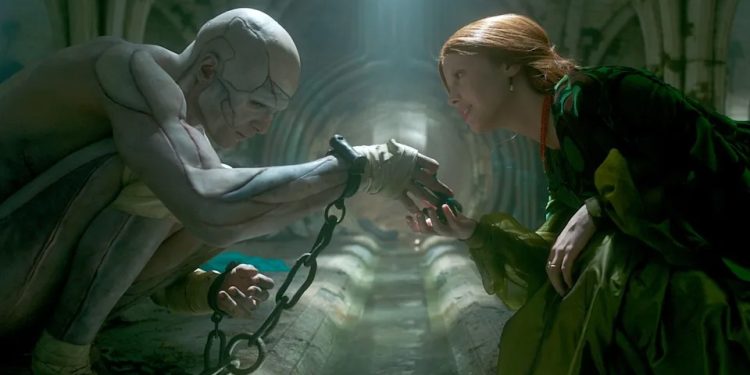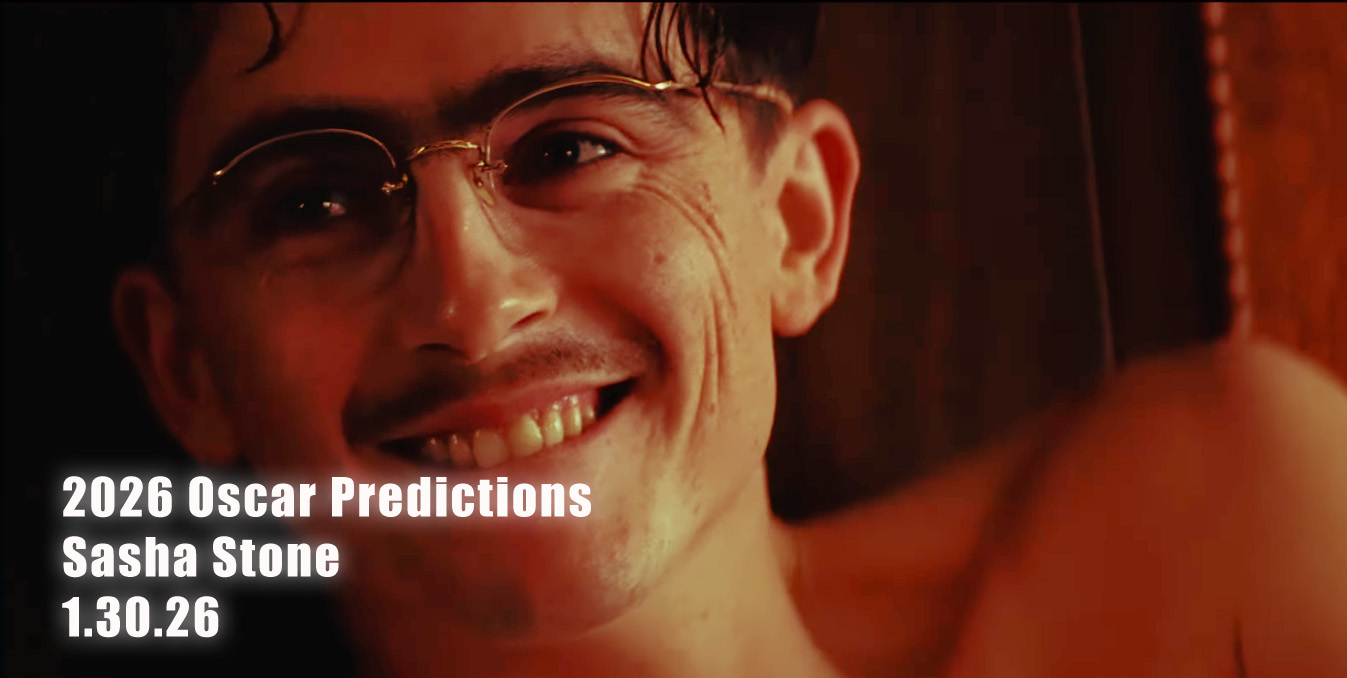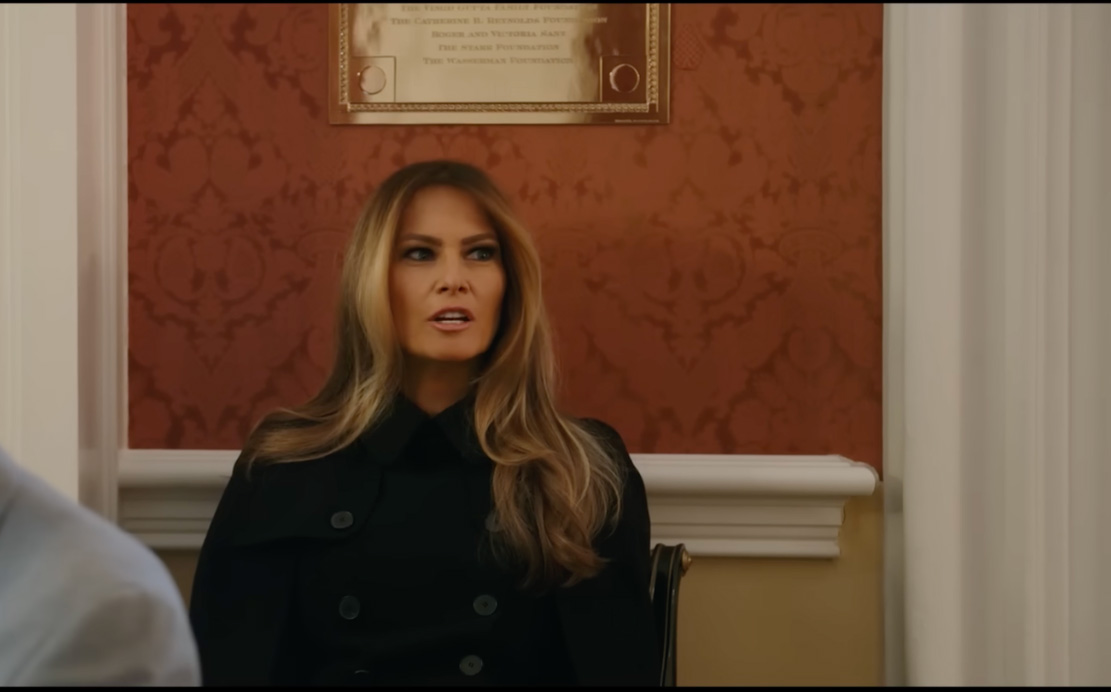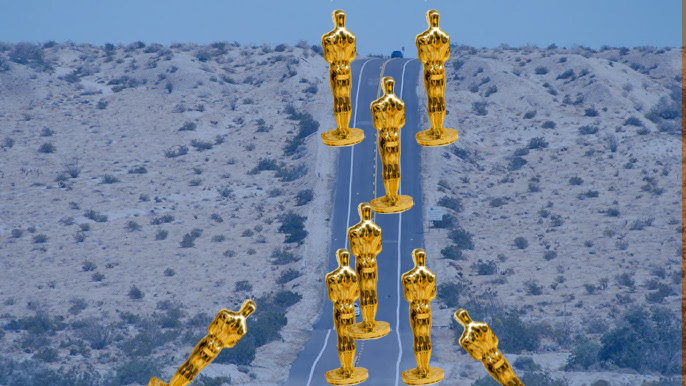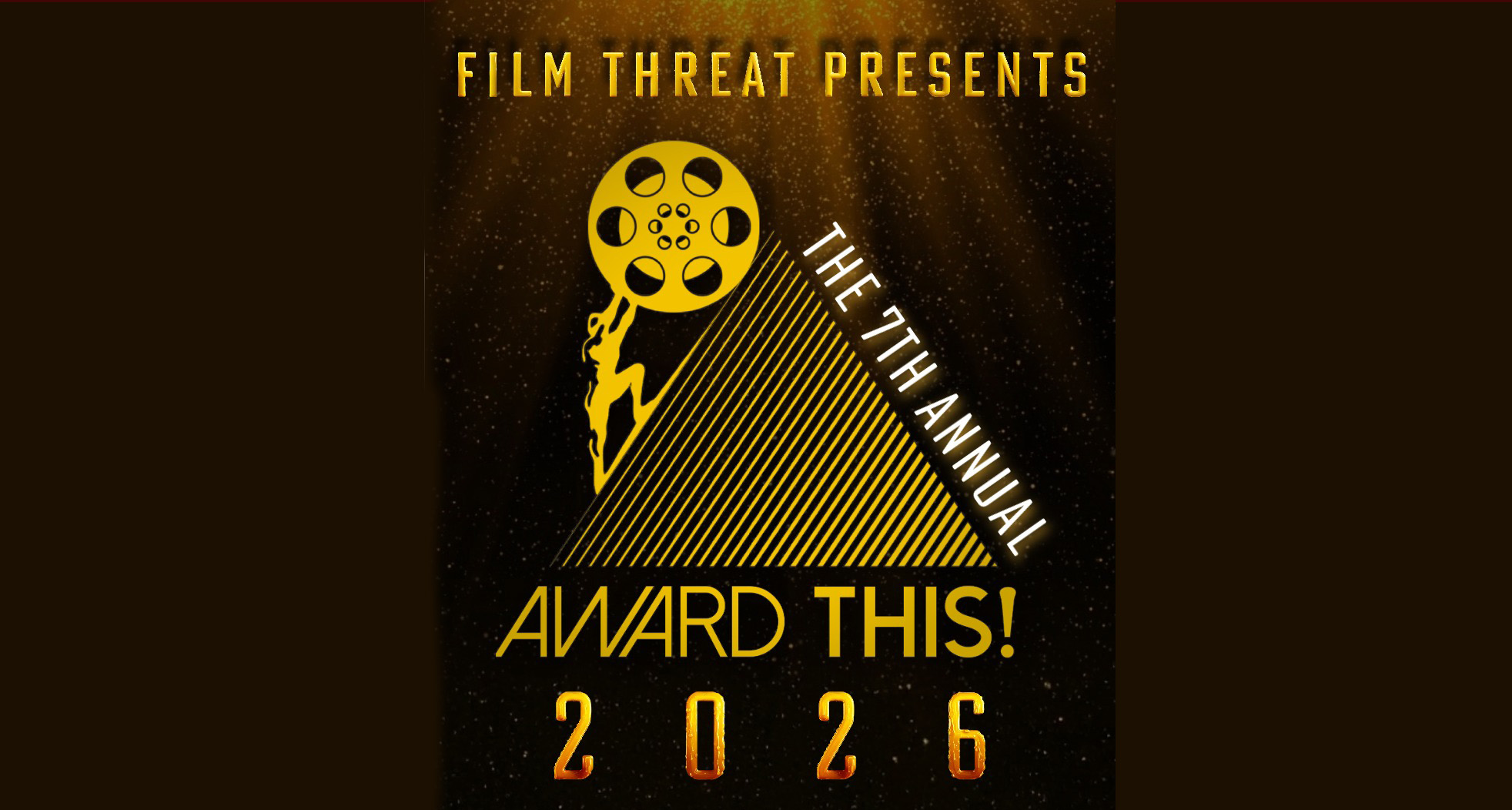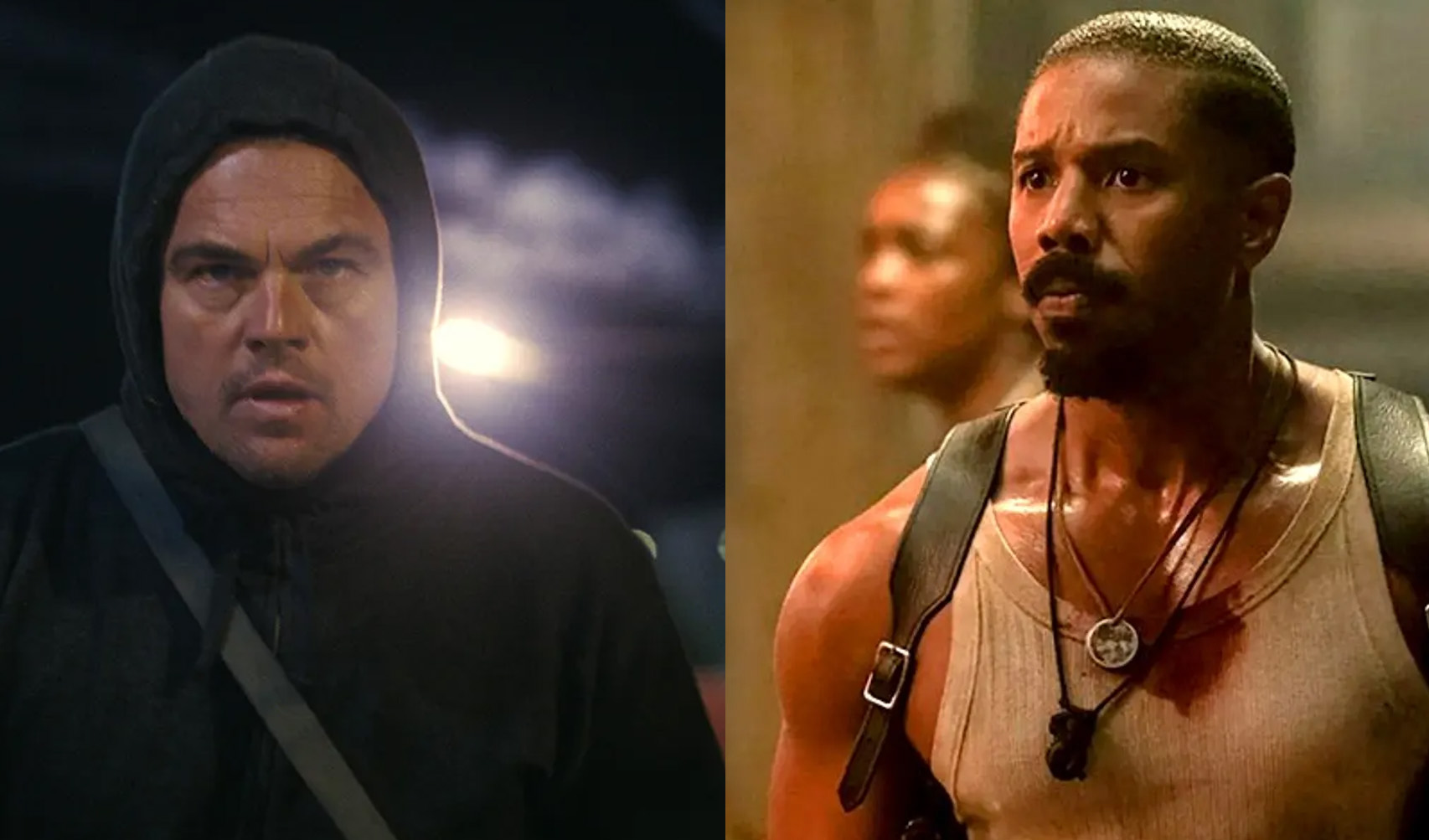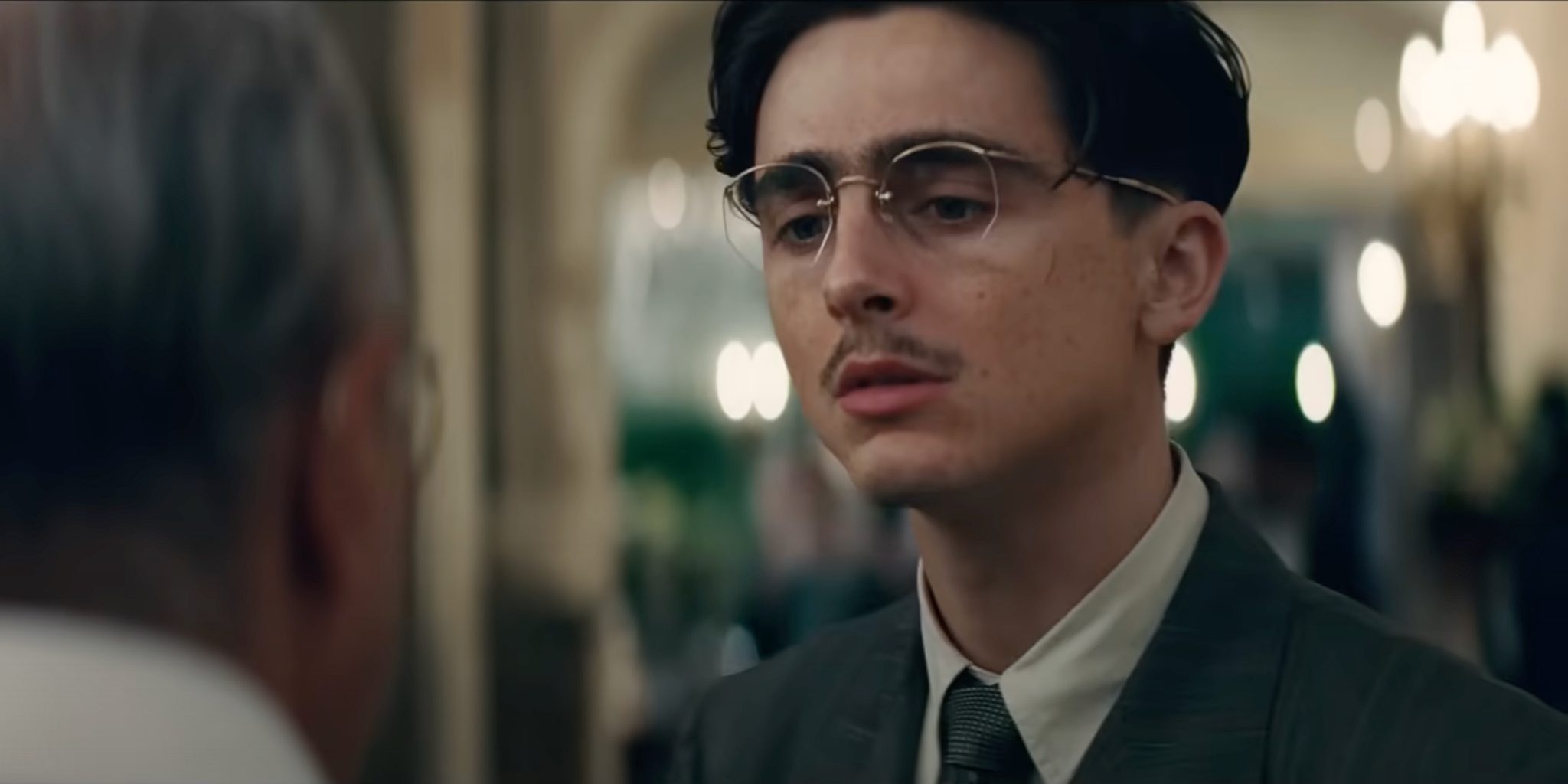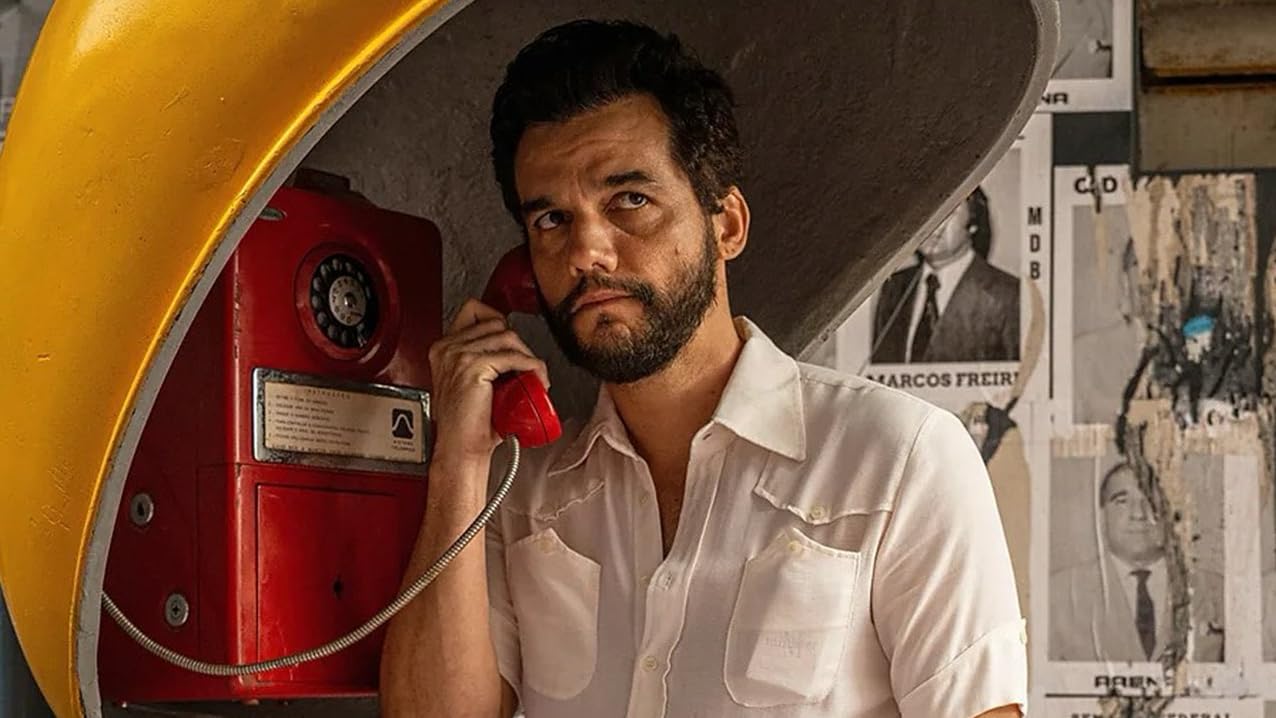One of the very best films of the year is Guillermo Del Toro’s Frankenstein. I didn’t expect the movie to be such a deeply emotional experience, but it is. That is thanks to the performance of Jacob Elordi as the creature, a dead soldier brought back to life as an experiment by his demonic creator, Dr. Frankenstein (an excellent but hateful Oscar Isaac).
Much of the film is Del Toro, given around $120 million by Netflix, but it’s all on the screen, to bring to life his vivid imagination, and it is like stepping into another world. It is fully immersive, unique, and absolutely breathtaking.
It would be enough if that were all the film was. If it were only the “crafts,” as the rumor went early on, the production design, the costumes (it wins walking in the door), or the cinematography. The visual effects are as expected with any Del Toro film. But that would not make it a masterpiece. I think it’s even better than The Shape of Water, which won Del Toro Best Picture and Best Director in 2017.
Frankenstein takes the swoony, romantic longing of The Shape of Water and transforms it into a much bigger statement about humanity. The best scene in it, the best line is when the creature sees the wolves attacking the sheep and the farmer shooting the wolves and concludes that it is a world at war with itself, and even if some things want to live there is always something out there that wants to kill them.
This is the lament of those of us cursed with too much empathy. How can we root for the rabbit and not the coyote? How can we root for the squirrel and not the rattlesnake? Or how can we want to see the eradication of rats and not cats or dogs? Or pigs in slaughterhouses…and not our horses? This is the curse of having a conscience and intelligence, to be able to see how unfair it all is.
Elordi should be a Supporting Actor nominee without a doubt. He puts his whole body into the performance to create this sad spectacle of a man pieced together that doesn’t know why he’s even here. He is shown kindness by Elizabeth (the wonderful Mia Goth) and the farmer who takes him in once he escapes.
It isn’t a complicated story; you already know it because you’ve seen Frankenstein before. There is nothing new to the foundational themes from the original. It is like the best horror films as it takes us deeper into the horrors of humanity, or real life. “We are the monsters.” Indeed.
I fought against the tears while watching Frankenstein. I thought, how can you be crying, you idiot? You already know what the movie is about. It wasn’t just Elordi’s performance, among the best of the year, but the beauty captured by Del Toro. AI couldn’t do that. It might be able to replicate what he imagines, perhaps, but this is the work of an artist, evident in every shot. A HUMAN artist.
Maybe it means so much to watch this film because it meant so much to Del Toro. The book, Mary Shelley’s Frankenstein, was, he says, his “Bible,” and he’s wanted to make this movie his entire life. Now, with the help of Netflix and their deep pockets — creative freedom and money — he brought it to life. This is how Netflix can be a force for good, when they give artists who are disciplined enough to make a great film, even with the freedom afforded to them. Not many can hold themselves back and often become too indulgent. The result is a mess. But not Frankenstein. Del Toro did not waste a minute, and every scene, every frame is a work of art.
Del Toro’s Frankenstein is a tribute less to the cinematic Frankensteins over the years but to Mary Shelley’s book, as you can see by this essay on the book:
And this image in that essay:
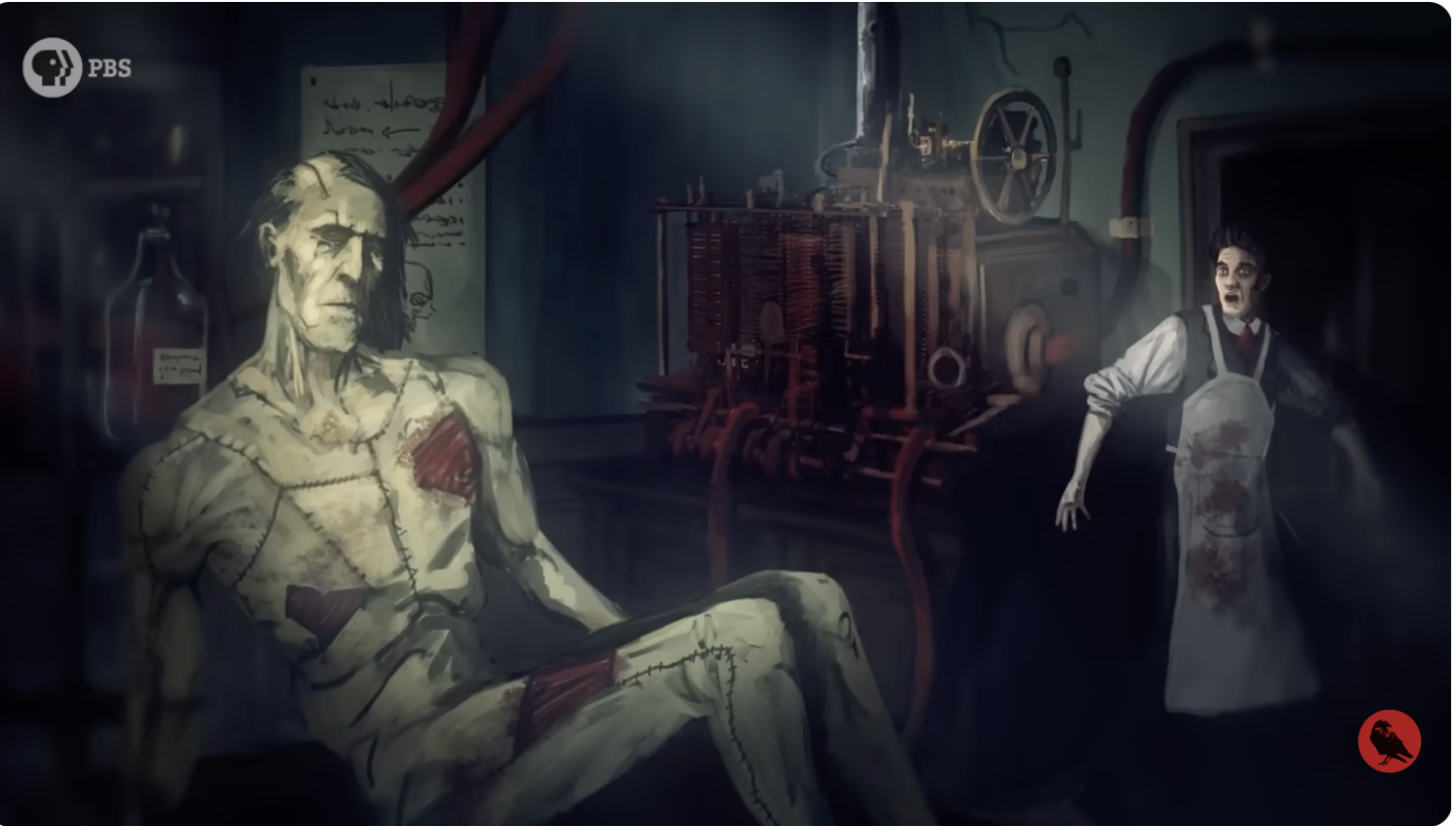
The creature is part animal, part man, and is born with the need for love. That is all he wants, and he is reminded by Dr. Frankenstein that he can’t have that because what can he offer? He can’t reproduce, for instance. The empathy toward animals is a theme that runs through the book and the film, not unlike George Orwell’s Animal Farm, where we’re meant to see things from the perspective of those whose lives we’ve taken control of because they have no means to resist our dominance over them.
That isn’t really the plot of Frankenstein, but your mind goes there anyway because the creature is so gentle and sees all living things as precious. His vulnerability is much like the creature in The Shape of Water, and explains why the women in these films swoon when in their presence. It’s kind of that thing women have when they fall for the Hunchback of Notre Dame. Monstrous outwardly, dreamy inwardly. It is not surprising that Mary Shelly, a woman, wrote the book.
Three of the best films of the year are horror movies — Sinners, Weapons, and now, Frankenstein. All three should be in the Best Picture race because they can show that horror can be a genre every bit as worthy. We already knew this from the great horror films of the past, like Halloween, The Thing, Carrie, and The Shining. It’s about time they crashed the party.
Don’t miss Frankenstein. It’s on Netflix now. It is the work of a master who has just made the film of his career.


